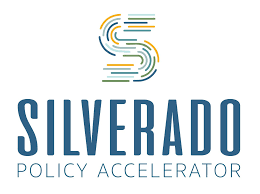On 5 May, panelists looked at efforts at the OECD, G7 and WTO to develop policies that seek to leverage trade to deploy cleaner energy and technology while avoiding unilateralism and counter-productive trade disruptions. Discussants provided a better understanding of the multiple work streams, priorities and synergies in discussion of CBAM.
Featured Speakers:
Ludivine Tamiotti, Secretary to the Committee on Trade and Environment at the WTO
Ken Ash, Visiting Fellow, Institute for International Trade, Adelaide; and former Director of Trade and Agriculture at the OECD
Catrina Rorke, Executive Director, Center for Climate and Trade; Senior Vice President for Policy and Research, Climate Leadership Council
Mark Linscott, Senior Fellow at the Atlantic Council; Senior Advisor at the Asia Group; and former Assistant USTR for WTO and Multilateral Affairs
Moderator: Alice Slayton Clark, US Council for International Business, VP, International Investment and Trade Policy
Speaker Biographies:
Ludivine Tamiotti is Head, Environment Section, Trade and Environment Division in the WTO in Geneva. She is in charge of the regular and negotiating committees on trade and environment, provides legal advice, conducts research and publishes widely on trade and environment (e.g. lead author of the WTO/UNEP Report on Trade and Climate Change).
Ken Ash is a Visiting Fellow at the Institute for International Trade, University of Adelaide, and Director of Ash Global Insights, offering advice to businesses and to governments on international trade and agricultural policies, with a focus on subsidy reform, supply chains, and global food systems.
Ken was Director of Trade and Agriculture at the OECD between 2008 and 2020, having served as Deputy Director since 1999. Ken led OECD efforts to provide evidence-based advice to governments, including in G7 and G20 groupings, with the aim of improving the domestic and international performance of trade, food, agriculture, and fisheries policies. During this period OECD expanded its annual agriculture policy monitoring and evaluation to 54 countries and 75% of global value-added, created internationally comparable policy data on trade facilitation, services trade, industrial subsidies, cross-border data flows, and export restrictions, and integrated trade and sectoral analysis into comprehensive structural policy advice to support economically, socially, and environmentally sustainable outcomes.
Prior to joining the OECD Ken had extensive experience in the Government of Canada. As Director General, Economic and Policy Analysis (1995-99) he provided strategic advice on agriculture and trade policies and on government-wide institutional reform. He holds both B. Comm and MBA degrees.
Catrina Rorke is senior vice president for policy and research at the Climate Leadership Council and executive director of the Center for Climate and Trade. In her role at the Council, she develops the details of the Baker-Shultz Carbon Dividends proposal, manages the Council’s research program, and supports its advocacy and outreach activities.
Prior to joining the Council, Ms. Rorke founded the energy and environment program at the R Street Institute, a free-market and limited government public policy organization where she served as director of energy policy and senior fellow. She also founded the energy program at the center-right American Action Forum, an economic, domestic, and fiscal policy think tank. As a legislative assistant to former U.S. Rep. Bob Inglis of South Carolina, Ms. Rorke helped develop the first Republican-sponsored carbon tax bill. She began her career as a presidential management fellow with the National Oceanic and Atmospheric Association.
Ms. Rorke has been recognized for her leadership in energy and climate policy by E&E News, The Hill, National Journal, and Grist, and her work has been published in national, local, and trade media. She supports center-right policy work by serving as a board member and advisor to several policy-focused organizations.
Mark Linscott is a Senior Fellow with the Atlantic Council and a Senior Advisor with the Asia Group. He spent most of his career as a US trade diplomat with the Office of the US Trade Representative (USTR). During this period, he was: the US negotiator for the WTO Government Procurement Agreement, concluded in 1994; Assistant USTR for Environment and Natural Resources when US climate legislation just missed crossing the finish line during the Obama administration; Assistant USTR for WTO and Multilateral Affairs when the WTO Trade Facilitation Agreement and agreement on agricultural export subsidies were concluded; and Assistant USTR for South and Central Asia as the chief negotiator with India on a trade deal.
Alice Slayton Clark is USCIB’s VP of International Investment and Trade Policy. Clark brings with her considerable experience in trade policy, having worked in a number of international law firms and consulting practices, as well as on Capitol Hill.
Most recently, Clark has been a Senior Government Relations Advisor for Jacobs Global Trade & Compliance LLC. Prior to this she spent time as an independent International Trade Consultant, and as an International Trade Specialist at Sidley Austin Brown & Wood, Powell Goldstein Frazer & Murphy, Graham & James, and Mudge Rose Guthrie Alexander and Ferdon. She began her trade career in the offices of Representative Robert Torricelli and Senator Bob Graham.
Clark received an MA in International Relations From Tufts University’s Fletcher School of Law and Diplomacy and a BA in Government and Spanish from Oberlin College. In the past she has served as the President of the Women in International Trade (WIIT), a Washington DC professional association.
WITA’s Trade & Environment events are supported by the generous sponsorship of Silverado Policy Accelerator




